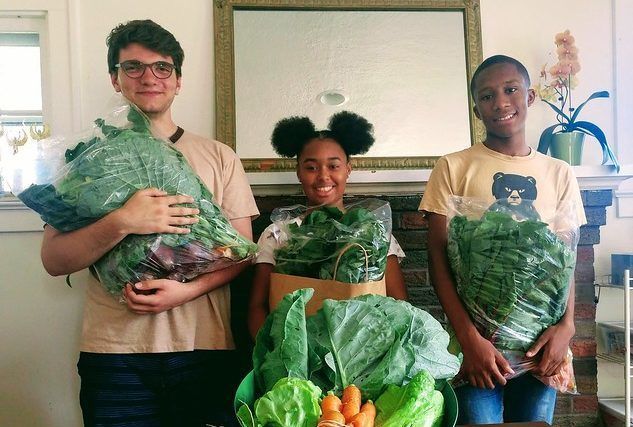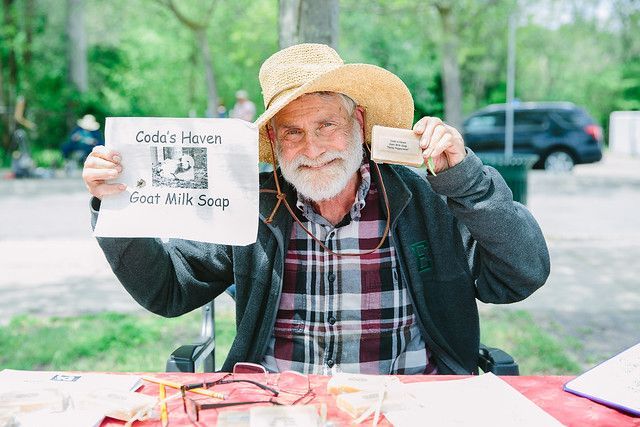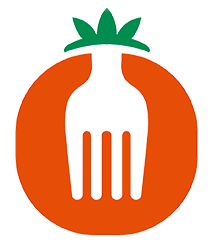Article
Growing Hope Through Food Sovereignty
Growing Hope, in Ypsilanti, Michigan, is a food systems organization that works on ushering folks into more intimate, just, joyful relationships with their food systems. Their mission is to foster food sovereignty. Food sovereignty means different things to different people, but according to the executive director, Julius Buzzard, food sovereignty means people having autonomy within the food system at all points–from seed to belly. For communities, this means being able to have self-determination over everything from the treatment of workers to the nutrition of produce, and to have both local and culturally relevant produce available.
Growing Hope has a multi-pronged approach to promoting local food sovereignty. Their programs include a farmers market, both youth and adult education programs, an incubator kitchen, and some direct food aid. The Ypsi Farmers Market is the most visible component of Growing Hope’s work, held in downtown Ypsilanti every Saturday, May through October. They pride themselves on being a market that is accessible to the people who live in the community around them, and whose diverse community is reflected in the vendors that sell at the market.
The market has much lower vendor fees than other farmers markets, which in turn allows vendors to charge less for their produce than they would at a high-fee market. The market also has multiple food assistance programs: they were the third market in the state to accept federal food assistance benefits, and it also has the Power of Produce club for children. By participating in activities such as painting farmer’s market tote bags and sampling vegetables, kids earn $5 in market tokens, which they can then spend on whatever they want.
Another component of engaging youth in the community is the youth education programming. The Growing Hope farm hosts field trips for students from Ypsi Community Schools, Lincoln Community Schools, and other youth-serving organizations such as Corner Health. The goal is to reach community kids in order to build a foundation of generational health that the kids can carry on to the rest of their families and communities.
Another component of youth education, the teen leadership program, is the longest-standing program at Growing Hope, and has been a central part of the organization since its inception over 20 years ago. It started as a school garden program, and over time has grown into a paid after-school leadership program where teens work at the farm and receive a mix of hands-on agricultural training, workshops on community organizing and food sovereignty, and guidance on job skills such as how to track and submit weekly hours and how to read the different parts of a paycheck. Regardless of whether they end up continuing to work in the food justice sector, the teens learn the crucial skills of 1) caring about the community around them and 2) knowing how to act on that care.
When it comes to adult education, Growing Hope teaches a wide variety of skills through the expertise of its staff. There is a home vegetable garden program, run by Ayanfe Jamison, which provides both the physical resources and the knowledge needed for working-class Ypsilanti residents to start or strengthen their home gardens. The teens who are part of the teen leadership program also put on workshops for the rest of the community, such as a recent corn nixtamalization workshop. Much of the adult education is community-driven or community-led; folks who are affiliated with Growing Hope but not part of its staff present on subjects that they’re passionate, experienced, and knowledgeable about. These workshops are often in response to specific requests or identified needs within the community.
There was also recently a Stepping Stones to Food Entrepreneurship workshop series organized by Deante Bland, the Incubator Kitchen Manager. Workshops covered topics such as Cottage Food Law, food business licensing, business planning and goal setting, menu and recipe optimization, and marketing and branding. The series culminated with a panel of makers who had graduated from the Incubator Kitchen sharing their experiences.
The incubator kitchen can, in some way, feel divorced from the rest of the food sovereignty work that Growing Hope does, but Julius sees local food entrepreneurship and having circular food economies as integral to creating communities with food sovereignty. He says that it is an essential step in creating new systems to empower people currently in the community to share their hopes, passions, and dreams, and to bring life to their communities in ways that are special and unique. The more that we can encourage people and give them options to spend money in ways that support their neighbors and invest in people who are part of the community, the more autonomous we make our food system.
Through the shared space and programming, the incubator kitchen provides a more accessible entry point into food business creation for people of color or anyone else who doesn’t have access to money and resources to start or scale up their food business. The kitchen supports makers in keeping their values as they build their businesses, and many of the businesses collaborate with other elements of the local food system. About 70 businesses have used the kitchen, 15 of which have graduated out to other places (and all but one of which are still local). One of these makers is Bird Dog Baking, which now has a brick and mortar space in Downtown Ypsilanti and which sources its grains locally and gets its produce from a Growing Hope-affiliated farm, Old City Acres. Another business just around the corner is Bearabakes, which also sources its fruits and vegetables from local farmers. The incubator kitchen doesn’t just foster food businesses; it fosters food businesses that are deeply integrated into the local food system.
Growing Hope’s emphasis is on food sovereignty and changing food systems, but the organization also recognizes that sometimes people need their direct, immediate needs met before they can engage in autonomy-building programs. The Growing Hope Urban Farm is located next to and across the street from some of Ypsilanti’s low-income neighborhoods, and has an on-site (recently rebuilt and expanded) free farm cart where they distribute both the produce they grow and food donated by other farms and food assistance organizations. Growing Hope alone produces and distributes more than 6,000 pounds of produce, and through donations from Old City Acres, We The People Opportunity Farm, Community Farm in Ann Arbor, and Food Gatherers, they feel like they are able to meet at least some of the needs that their community has. The need is so much more than what they can directly provide, but Growing Hope does what they can to support people in getting to a place where they can pursue food sovereignty.
This post is part of a series by Emma Rose Hardy, a PhD Candidate at the University of Michigan and the Rackham Local Food Systems Intern at Growing Hope. The series aims to highlight the essential role that SNAP and other food assistance programs play in the Washtenaw County local food system.
share this
Related Articles
Related Articles
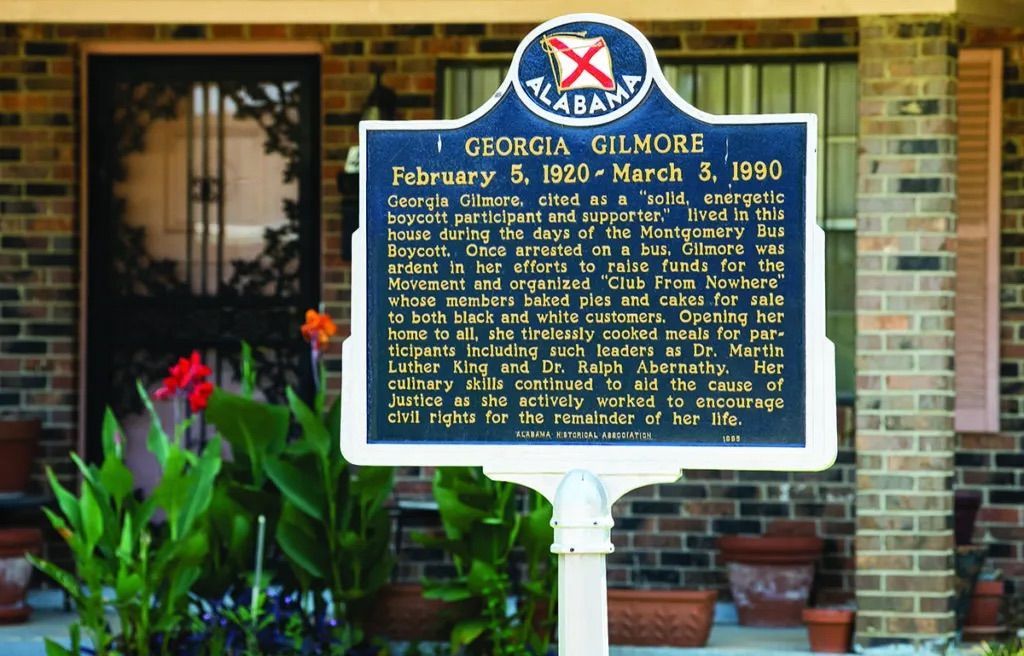

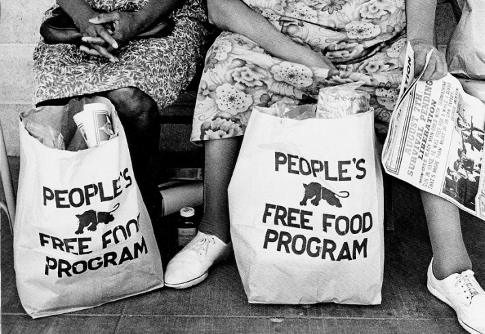
STAY UP TO DATE
GET PATH'S LATEST
Receive bi-weekly updates from the church, and get a heads up on upcoming events.
Contact Us


